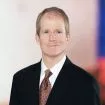The wireless industry has revolutionized the way we connect, from facilitating teleworking, distance learning, and telemedicine, to virtually digitizing almost all other aspects of Americans' daily lives. Leading policymakers - federal regulators and legislators - are making it a top priority to ensure that the wireless industry has the tools and resources it needs to keep pace with this evolving landscape. This blog provides monthly updates on actions by federal regulatory bodies responsible for communications policy and Congressional efforts to support wireless connectivity. And this month we highlight something that has never occurred in FCC history: the expiration of the Commission's spectrum auction authority.
Regulatory Actions and Initiatives at the FCC
Wireless Spectrum
FCC Spectrum Auction Authority Expires. For the first time in decades, the FCC's authority to conduct spectrum auctions, which was granted by Congress in 1993, has expired. Not only has the expiration of FCC's authority halted any ongoing actions by the Commission related to recently auctioned spectrum, but, until it is re-authorized, no new spectrum bands may be auctioned - putting a hold on the pipeline of resources wireless carriers need to provide service. FCC Chairwoman Jessica Rosenworcel commented: "For three decades, the Federal Communications Commission's authority to auction the nation's airwaves has been an indispensable tool for harnessing the promise of new wireless technologies while also spurring economic growth, creating jobs, and strengthening our national security and global leadership. Time and time again, our auctions have proven to be an enormous engine for market innovation and the flourishing internet ecosystem, and for expanding the reach of next-generation connectivity to everyone, everywhere. To date, the FCC has held 100 auctions and has raised more than $233 billion in revenues and unlocked extraordinary benefits for the American people." She expressed hope that the FCC's auction authority will be "restored quickly so that this important program is once again able to produce results for consumers and the economy."
The FCC Takes Additional Steps to Clear Spectrum in the 3.7-4.2 GHz Band for Wireless Services. As the FCC continues to transition the 3.7-4.2 GHz band, also known as the C-band, for commercial wireless services, it took a number of actions this month to finalize clearing of the band, update its list of incumbent earth stations that are entitled to reimbursement or other protection rights, and clarify what costs are reimbursable. Specifically:
- The Wireless Telecommunications Bureau ("WTB") released a Public Notice seeking comment on proposed procedures related to the filing of certifications by incumbent satellite operators - known as Phase II Certifications - that have satisfied their commitment to clear the rest of the C-band by an accelerated clearing date of December 5, 2023. The WTB proposes to adopt similar filing procedures as those adopted for Phase I Certifications, which allowed eligible space station operators to submit Certifications and stakeholders to file related challenges. In addition, the WTB proposes adopting an incremental reduction plan for Phase II Accelerated Relocation Payments, which wireless licensees must pay if the satellite operators satisfy their Phase II clearing deadline. The process for the incremental reduction plan would parallel the Phase I process if a space station operator fails to meet the Phase II accelerated relocation deadline. Comments on the Phase II Certification process are due April 20.
- The FCC released an Order denying an application for review filed by PSSI Global Services, LLC ("PSSI"), which requested review of a WTB decision to dismiss a July 2021 letter from PSSI as an untimely petition for reconsideration of the WTB's final Cost Catalog for the C-band transition. PSSI's letter argued that the Cost Catalog should have been adjusted to take into account specific types of equipment relating to the transportable fixed earth stations that PSSI operates. The Commission, however, disagreed, finding that (1) PSSI failed to provide a sound argument that its letter was not an untimely petition for reconsideration; (2) even if the letter was not a petition for reconsideration, the WTB had no basis to consider it because parties seeking reimbursement must first submit a claim to the Clearinghouse before the WTB may resolve any disputes; and (3) advance WTB guidance on the reimbursement of specific transition costs prior to the Clearinghouse review process is neither necessary nor appropriate because it would upend the allocation of responsibilities between the parties.
- In addition, the FCC released an Order denying an application for review filed by the Capitol Broadcasting Company ("Capitol"), which requested review of the International Bureau's ("IB") determination that Capitol's earth station did not qualify as an "incumbent earth station" for purposes of the C-band transition. The Commission found that Capitol had ample notification that it was required to submit a certification in order to receive incumbent status, and Capitol did not provide any explanation why it failed to submit the certification other than it was an inadvertent mistake.
- Finally, the IB released a Public Notice with an updated list of C-band earth stations that have been reported by the C-band relocation coordinator - RSM US LLP - as non-operational or over-registered. Earth station operators included in the list have 90 days - i.e., until June 19, 2023 - to correct their registrations or affirm that their earth stations are in operation and receive in the C-band. Failure to do so will result in the automatic termination of the operator's earth station authorization or a determination that the antenna does not qualify for incumbent status (and thus interference protection).
- Relatedly, the IB released a Public Notice announcing that the government of Canada has requested frequency coordination for certain Canadian earth stations (listed at the end of the Public Notice) operating in the C-band and 5925-6425 MHz bands. Comments on the Public Notice are due April 11. If no "adverse comments" are received by that date, the earth stations will be considered satisfactorily coordinated with the U.S., and Canada will be so advised.
Selection of a Clearinghouse to Transition the 3.45 GHz Band for Commercial Wireless Services is Underway. Similar to the C-band, the 3.45 GHz band is also being transitioned to allow for commercial wireless services. As directed by the WTB in the Reimbursement Clearinghouse Order, the 3.45 GHz Reimbursement Clearinghouse Search Committee filed a Request for Proposal, soliciting business plans and other information from entities interested in serving as the Clearinghouse to transition the 3.45 GHz band. Proposals were due to the Search Committee by April 3, 2023. After receiving and reviewing the proposals, the Search Committee will be required to notify the WTB of its tentative choice for the Clearinghouse, which will be subject to public comment, by May 2, 2022.
Wireless Equipment, Networks, and Infrastructure
The FCC Releases a Draft Policy Statement on Receiver Performance. On March 30, 2023, the FCC released a draft Policy Statement that, if adopted, would articulate high-level principles intended to guide future FCC decision-making and stakeholder action related to the operation and use of transmitters and receivers in spectrally proximate (i.e., neighboring) services. The Policy Statement would recognize that interference is a function of both transmitter and receiver characteristics, transmitters should be designed to minimize the amount of transmitted energy outside of their assigned frequencies, and receivers should be designed to mitigate interference from emissions outside of their service's assigned frequencies and channels, among other things. The Policy Statement would not be binding on the FCC or other parties, and it would not prevent the FCC from making a decision that contravenes the principles in a future proceeding.
Samsung Requests a Waiver to Manufacture Devices Across Multiple Spectrum Bands. Samsung has filed a request for waiver of the FCC's rules related to out-of-band emission limits for devices operating in the 3.5 GHz band that, similar to a request previously filed by Ericsson that was recently granted by the FCC, would allow it to manufacture and operate a 5G base station across multiple spectrum bands. However, unlike Ericsson's request, which sought authority across the 3.45 GHz and C-bands, Samsung seeks to operate its base station across the 3.5 GHz and C-bands, whereas Ericsson's base station is permitted to operate across the 3.45 GHz and C-bands. The deadlines for submitting comments were due March 27, and reply comments were due April 4. The two entities - Verizon and Ericsson - that filed comments on the waiver request noted their support for the waiver request and urged the FCC to grant it.
The FCC Takes Further Action to Increase the Security of Communications Networks. In November 2022, the FCC released a Report and Order adopting certain revisions to its equipment authorization program to prohibit the authorization, importation, and marketing of certain equipment that has been identified as posing an unacceptable risk to national security. In a Further Notice accompanying that decision, the FCC also requested comment on (1) whether component parts should be considered in the prohibition of covered equipment; (2) whether the Commission should revoke previously authorized equipment on the covered list; and (3) whether the Commission's auction rules should be revised to address national security concerns. Comments and replies on the Further Notice are due April 7 and May 8, respectively.
In addition, several notices were released related to communications service providers' obligations to report on equipment and services that pose a national security risk, including:
- A Public Notice announcing that public results from the FCC's Supply Chain Annual Report filings for the 2021 reporting period are now publicly available. It notes that, to date, 79 providers reported that they had purchased, rented, leased or otherwise obtained covered equipment or services subject to reporting for the 2022 Supply Chain Annual Report and provides a list of those providers.
- A Public Notice reminding providers that the filing deadline for the Supply Chain Annual Reporting requirement was March 31, 2023, covering information as of December 31, 2022.
- A Public Notice reminding parties participating in the FCC's rip-and-replace funding program that they must submit their next status report by April 11, 2023. This report is separate from the annual report noted above and must be submitted every 90 days until a program participant files a final certification that removal and replacement is complete.
Other Agency Actions
NTIA Releases its National Spectrum Strategy. The National Telecommunications Information Administration ("NTIA") released its long-awaited National Spectrum Strategy, requesting comments on its development and implementation, by April 17. The request for comments is organized into three "pillars" - (i) spectrum pipeline; (ii) long term spectrum planning; and (iii) spectrum access and management - each of which contains multiple questions. In addition, NTIA asks about how to implement the National Spectrum Strategy over the next 12-24 months, including the spectrum bands that should be prioritized for in-depth study and the timeline for repurposing spectrum in the identified bands. According to NTIA's press release, the goal is to "identify at least 1,500 megahertz of spectrum to study for potential repurposing - perhaps the most ambitious study goal for NTIA to date - to meet future requirements for non-federal and federal users." NTIA also released a Notice announcing two public listening sessions - one that was held on March 30 (in Washington, DC) and another that will be held on April 11 (in Notre Dame, IN) - on its National Spectrum Strategy.
Contestants for the Next 5G Challenge Have Been Selected. NTIA issued a News Release on March 9, 2023, announcing that seven contestants have been selected (from 23 white paper applications) to participate in the $7 million 2023 5G challenge. The contestants will comprise two teams of two pairs as follows, with one contestant in each pair providing the central unit and distributed unit (CU+DU) and the second providing the radio unit (RU).
- Team 1
- Pairing 1: Mavenir Systems, Inc. (CU+DU); NewEdge Inc. (RU)
- Pairing 2: Radisys Corporation (CU+DU); LIONS Technology (RU)
- Team 2
- Pairing 1: Capgemini Engineering (CU+DU); Fujitsu Network Communications, Inc. and AT&T (RU)
- Pairing 2: GXC, Inc. (CU+DU); GXC, Inc. (RU)
The 2023 5G Challenge consists of multiple stages, and prizes will be awarded to contestants that have the best performance.
In the Courts
A Federal Court Confirms that Local Authorities Cannot Create Section 6409 Exceptions by Characterizing Facilities Based on Size or Claiming that Facilities Originally Receiving "Administrative" Approvals are Exempt. On March 2, 2023, the U.S. District Court for the Northern District of California granted T-Mobile summary judgment, rejecting San Francisco's attempt to require subjective conditional use permits for modifications to existing wireless installations that were originally approved under the City's administrative approval process. See T-Mobile West LLC v. City and County of San Francisco, 2023 US Dist. Lexis 37408 (N.D. Cal. Mar. 2, 2023). In this case, T-Mobile applied to modify several existing installations as eligible facilities requests ("EFRs") under Section 6409 in a way that did not significantly change the physical dimensions of the facilities under the FCC's regulations. In response, the City asserted that the proposed modifications required a conditional use permit because the original installations were classified by the City as "micro" wireless facilities, and the proposed modification would change the facility to what the City classified as "macro" facilities, which were classifications that did not comport with the FCC's standards to implement Section 6409. The City further argued that because the facilities were originally administratively approved as micro facilities, the approvals were an exception to the City's "normal and applicable zoning processes," and, as a result, did not constitute "existing base stations" subject to Section 6409. The Court held that "San Francisco's argument [had] no foundation in law or logic" and explained that regardless of how the City originally approved T-Mobile's facilities or how the City would categorize the modified facilities, "that [they] were approved by San Francisco in the first instance necessarily means they fall within the ambit of [Section 6409]." The Court ordered the City to treat the T-Mobile EFR applications as "deemed granted" and enjoined the City from "imposing penalties or in any way preventing T-Mobile from proceeding with the installation set forth in the applications."
Legislative Efforts
The House Communications and Technology Subcommittee Reports Six Key Wireless Bills. On March 24, 2023, the Communications and Technology Subcommittee of the House Energy and Commerce Committee favorably reported several bills, including six wireless-related bills:
- The Open RAN Outreach Act, which would require NTIA to conduct outreach and provide technical assistance to small communications network providers to (1) raise awareness of the benefits, uses, and challenges of Open Radio Access Networks and other open network architectures, and (2) to discuss their participation in the Wireless Supply Chain Innovation Grant Program;
- The Spectrum Coordination Act, which seeks to foster a more collaborative spectrum coordination agreement between the FCC and NTIA by amending the NTIA Organization Act to require the FCC and NTIA to update their Memorandum of Understanding on spectrum coordination every four years, among other things;
- The ITS Codification Act, which would amend the NTIA Organization Act to provide statutory authority for the Institute for Telecommunication Sciences, which serves as the telecommunications research and engineering arm of NTIA;
- The Information and Communication Technology Strategy Act, which would require the Commerce Department, acting through NTIA, to develop a strategy to ensure the economic competitiveness of the information and communication technology supply chain;
- The Promoting U.S. Wireless Leadership Act, which seeks to promote U.S. leadership in setting international wireless standards for 5G networks and future generations of wireless communications networks by requiring NTIA, in consultation with NIST, to encourage a wide variety of trusted stakeholders to participate in standards-setting bodies and offer technical expertise to those stakeholders to facilitate their participation; and
- The Advanced, Local Emergency Response Telecommunications (ALERT) Parity Act, which would enable providers of emergency connectivity services to apply to the FCC to access spectrum to fill in coverage gaps in unserved areas.
Relatedly, on March 10, the House Communications and Technology Subcommittee held a hearing entitled "Defending America's Wireless Leadership." The purpose of the hearing was to discuss the role licensed and unlicensed spectrum plays in our economy, how the FCC and NTIA coordinate spectrum management activities, and how the U.S. ceding spectrum policy leadership would affect the U.S. economy. Several subcommittee members discussed the expiration of the FCC's spectrum auction authority and explained that the lapse could lead the U.S. to cede wireless leadership to other countries, like China. Many also urged the FCC and NTIA to improve spectrum coordination to promote efficient spectrum use.
The Senate Introduces a Bill to Extend the FCC's Spectrum Auction Authority. On March 2, 2023, Senator Rounds introduced a bill that would extend the FCC's spectrum auction authority to September 30, 2023, the end of the current fiscal year.
The content of this article is intended to provide a general guide to the subject matter. Specialist advice should be sought about your specific circumstances.



